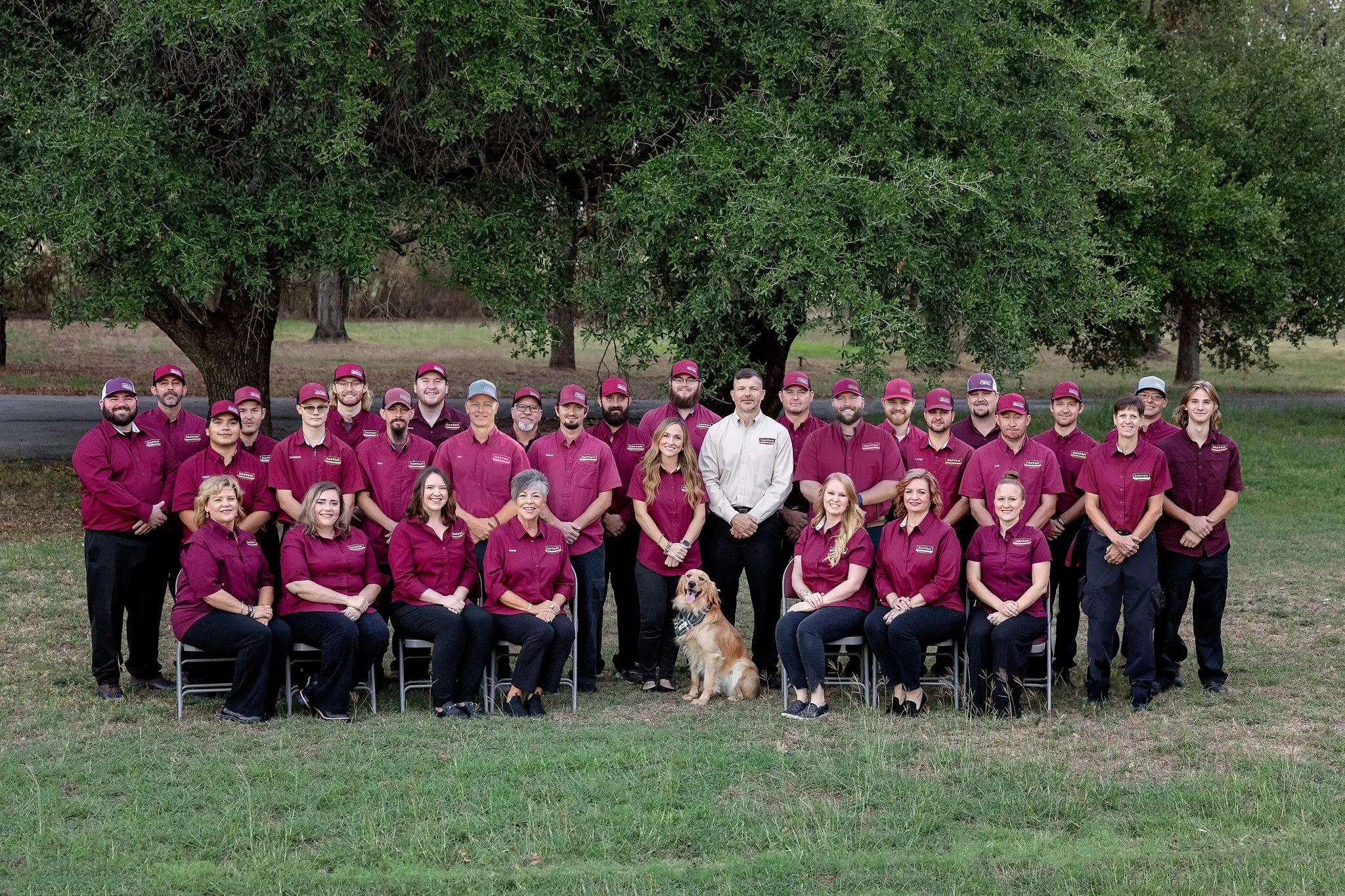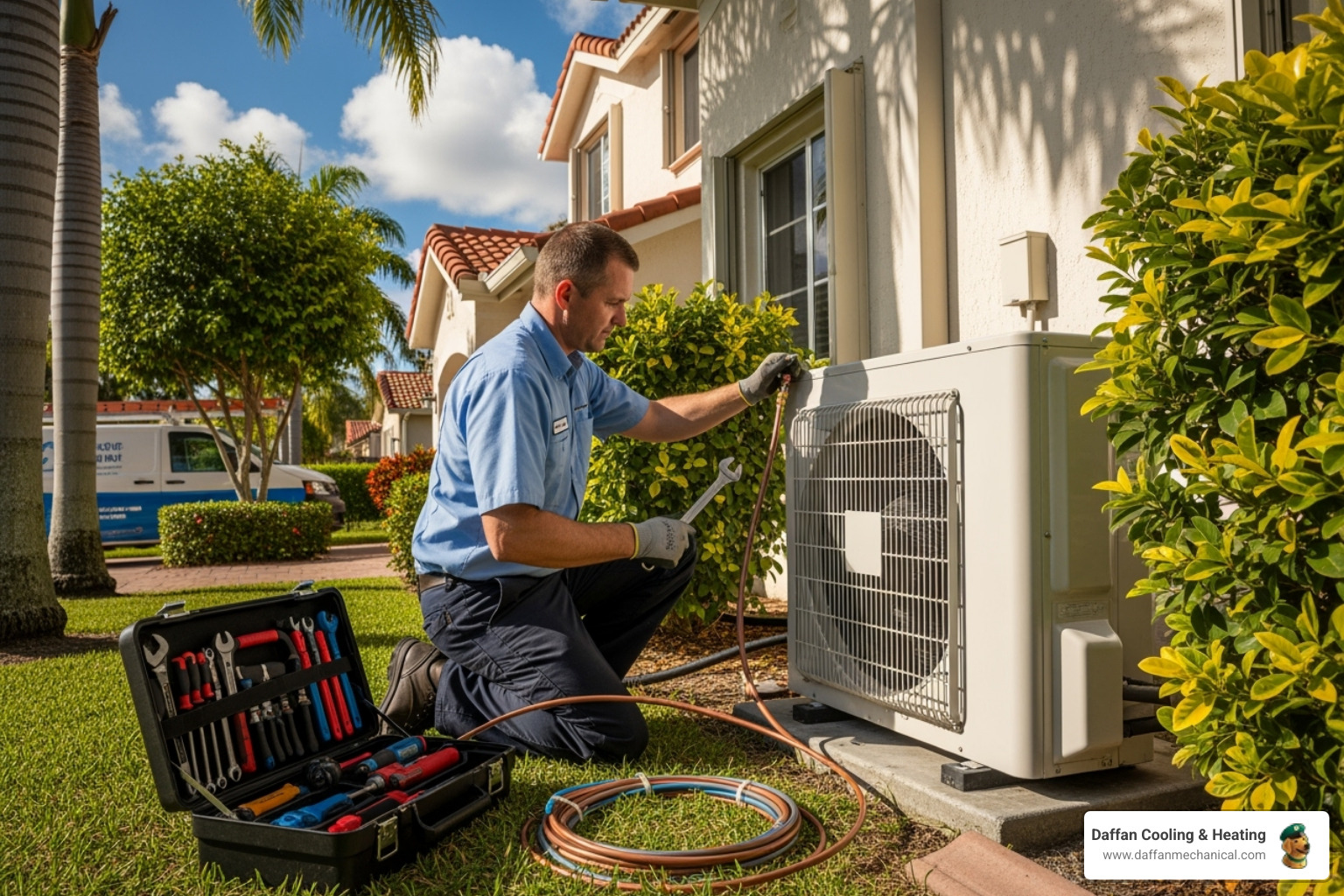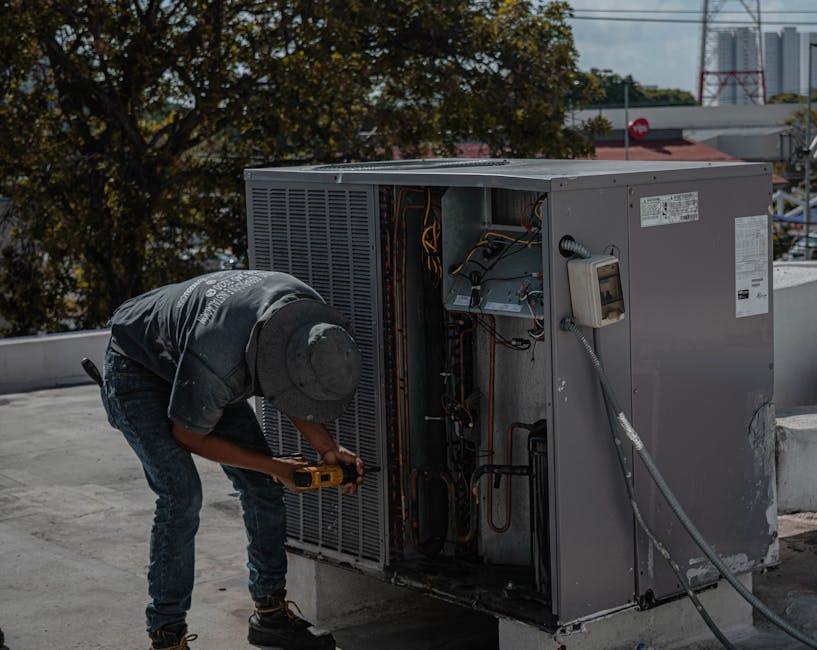Heat pump systems play a vital role in maintaining comfortable indoor temperatures throughout the year. These systems are designed to transfer heat between the indoors and outdoors, providing both heating and cooling.
Understanding How Heat Pump Systems Work
Heat pump systems use a refrigeration cycle to move heat between your home and the outdoors. They consist of an indoor unit, an outdoor unit, and a series of refrigerant lines connecting the two. The system works by absorbing heat from one location and releasing it in another.
Heating Mode
In heating mode, the heat pump extracts heat from the outside air, even in cold weather. The refrigerant absorbs this heat and becomes a gas. The gas then passes through a compressor, increasing its temperature. Once the gas reaches the indoor unit, it releases heat into your home. The refrigerant cools down and returns to a liquid state, ready to absorb more heat from outside.
Cooling Mode
In cooling mode, the process reverses. The heat pump extracts heat from indoor air and releases it outside. The refrigerant absorbs the indoor heat and becomes a gas. It then passes through the compressor and releases the heat outdoors. The cooled refrigerant then circulates back inside to absorb more heat, effectively cooling your home.
Components
The main components of a heat pump system include:
1. Compressor: This increases the pressure and temperature of the refrigerant.
2. Evaporator Coil: Located in the indoor unit, this component absorbs heat from the indoor air.
3. Condenser Coil: Located in the outdoor unit, this component releases absorbed heat outside.
4. Expansion Valve: This reduces the pressure of the refrigerant, allowing it to absorb heat efficiently.
Common Heat Pump Problems and Solutions
Heat pump systems, while efficient, can run into issues that affect their performance.
Inadequate Heating or Cooling
If your heat pump is not providing adequate heating or cooling, it could be due to several factors:
- Dirty Air Filters: Clogged filters restrict airflow and reduce efficiency. Solution: Replace or clean air filters regularly.
- Low Refrigerant: Inadequate refrigerant levels can prevent proper heat transfer. Solution: Ensure refrigerant levels are checked and refilled by our professionals.
- Thermostat Issues: Incorrect thermostat settings can impact performance. Solution: Check and adjust the thermostat settings as needed.
Unusual Noises
Unusual noises such as rattling or squealing can indicate problems within the system:
- Loose Parts: Loose components can cause rattling sounds. Solution: Turn off the system and secure any loose parts.
- Worn-Out Bearings: Squealing noises may indicate worn-out bearings in the motor. Solution: Contact our professionals to inspect and replace faulty bearings.
Frequent Cycling
Reduced airflow affects comfort and efficiency:
- Blocked Vents: Blocked or closed vents can restrict airflow. Solution: Ensure all vents are open and unobstructed.
- Duct Leaks: Leaks in the ductwork can cause loss of conditioned air. Solution: Seal any leaks or contact our professionals for more extensive repairs.
Tips for Preventing Heat Pump Issues
Preventing problems with heat pump systems is crucial for maintaining efficiency and extending the equipment’s lifespan.
Regular Maintenance
Regular maintenance is key to preventing common issues:
1. Schedule Annual Check-Ups: Have our professionals inspect and service your heat pump at least once a year. They can catch potential problems early.
2. Replace Air Filters: Dirty filters restrict airflow and reduce efficiency. Replace or clean filters every 1-3 months.
3. Clean Coils: Ensure both indoor and outdoor coils are clean. Dirt buildup can obstruct heat transfer and cause the system to overwork.
4. Check Refrigerant Levels: Low refrigerant can affect performance. Our technicians can check and refill refrigerant as needed.
Proper Usage
Proper usage can also prevent problems:
1. Use a Programmable Thermostat: Programmable thermostats help maintain consistent indoor temperatures, reducing the strain on your heat pump.
2. Avoid Frequent Thermostat Adjustments: Constantly changing the thermostat settings can cause the system to cycle more frequently.
3. Keep the Outdoor Unit Clear: Ensure the outdoor unit is free from debris, plants, and other obstructions. This allows for proper airflow and efficient operation.
4. Set a Consistent Temperature: Keeping a steady temperature helps the system run more efficiently.
Visual Inspections
Performing visual inspections can help you identify and address issues before they worsen:
1. Check Ductwork: Inspect ducts for visible leaks or damages.
2. Inspect Vents: Ensure all vents are open and unobstructed.
3. Monitor System Performance: Listen for unusual noises and observe for any performance changes.
When to Call Our Professionals for Heat Pump Repairs
Knowing when to call our professionals is crucial for addressing serious heat pump issues.
Signs You Need Professional Help
Several signs indicate it’s time to call in our professionals:
1. Persistent Poor Performance: If your heat pump consistently fails to heat or cool your home adequately, professional assessment is necessary.
2. Unusual Noises: Squealing, grinding, or rattling noises require professional diagnosis and repair.
3. Frequent Cycling: If your system cycles on and off more frequently than usual, it could indicate a deeper issue.
4. Unexpected High Energy Bills: A sudden spike in energy costs can signal inefficiencies in your heat pump system.
Safety Concerns
Some issues pose safety risks and demand immediate professional attention:
1. Electrical Problems: If you notice flickering lights, tripped breakers, or any signs of electrical issues, turn off your unit and call our professionals.
2. Refrigerant Leaks: Refrigerant leaks not only affect performance but can also pose health risks. If you suspect a leak, contact us immediately.
3. Strange Odors: Unusual smells, particularly burning odors, should prompt an immediate call for service.
Complex Repairs
Complex repairs should always be left to our professionals to ensure the job is done correctly:
1. Compressor Issues: Problems with the compressor often indicate significant mechanical issues.
2. Ductwork Repairs: Leaky or damaged ducts can reduce system efficiency and require professional sealing or replacement.
3. Refrigerant Recharges: Handling refrigerants should always be done by trained and certified technicians.
Conclusion
Understanding how your heat pump system works and knowing how to troubleshoot common issues can help maintain its efficiency and prolong its lifespan. Regular maintenance and proper usage are key to preventing problems, while recognizing when to call in professionals ensures that more serious issues are addressed correctly and safely. By following these guidelines, you can enjoy reliable heating and cooling in your home for years to come.
If you experience persistent issues or need professional assistance with your heat pump systems in Granbury, TX, Daffan Cooling & Heating is here to help. Our team of experts is ready to provide the solutions you need. Contact us today to schedule a service appointment or to learn more about our heat pump repair services!




